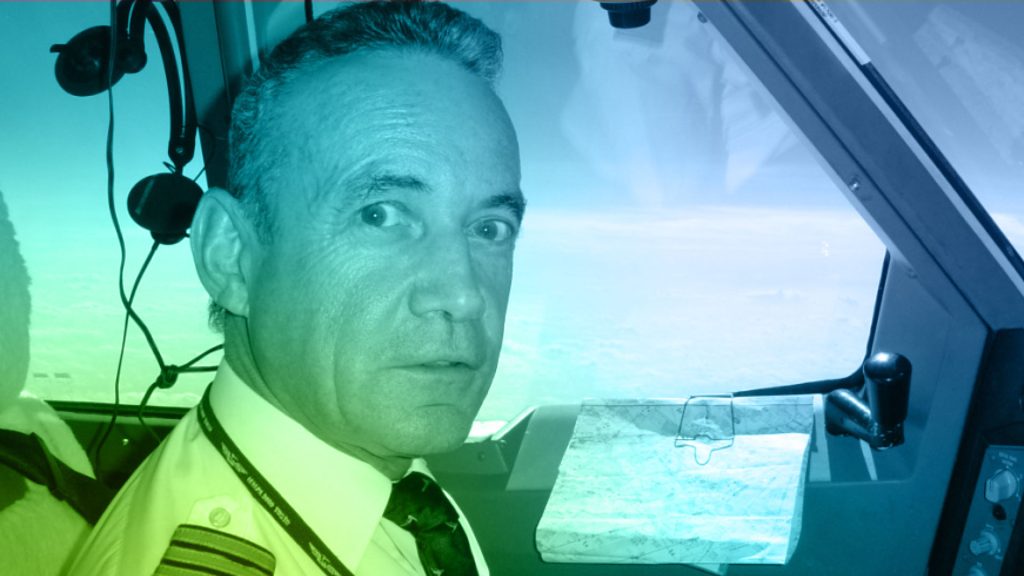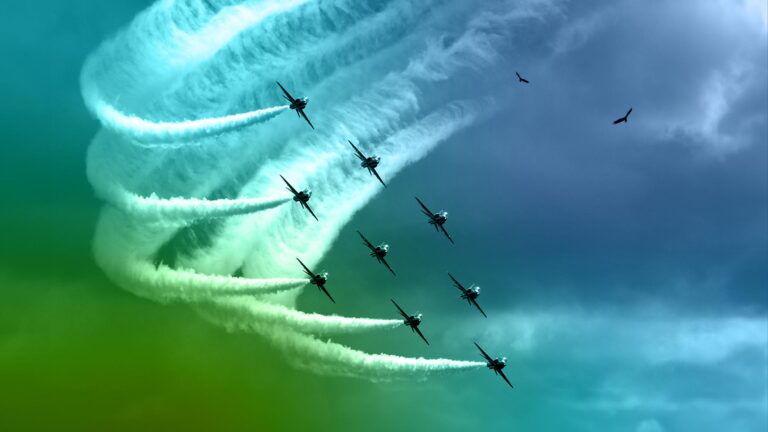Aviation consultant and founding director of Aviation Solutions
Brian Greeves’ aviation career encompasses wide-ranging experience as a pilot in military and commercial aviation, in engineering science, airport design and operation, and aviation wildlife hazard management.
He was, quite literally, born into aviation, coming into the world on a snowy April day at no 52 Married Officers’ Quarters on the Royal Air Force (RAF) base at Lindholme in Yorkshire (UK), where his father was a squadron leader. It was almost inevitable then at the age of 16 that he would apply to join the RAF, attending a five-day selection course at the officer and aircrew selection centre at Biggin Hill.
He was awarded a two-year scholarship and 30-hours’ flying lessons at a civilian school, with a guarantee of admission to the engineering branch at RAF Cranwell on successful completion of his secondary studies. He soloed at 17, but ‘my real ambition was to become one of the rare engineering officers that obtained their wings and were used as maintenance pilots,’ he says. His ‘A’ levels (similar to the Australian Higher School Certificate) were not good enough for engineering, so he was offered a place as a flight cadet instead. However, the day after arriving at Cranwell, ‘I was ordered to retake my ‘A’ levels and go to university’ to study engineering.
His engineering science degree from Exeter University (B.Sc Hons.) has stood him in good stead, he says. ‘It has been very useful and enabled me to be involved in things I wouldn’t have been able to otherwise. Throughout my flying, it has meant I could talk to engineers about problems, not undermining LAMEs, but with an enquiring mind, help to identify problems.’
After a varied 13-year career in the RAF, and having attained the rank of flight lieutenant, he made the transition to civilian flying, enjoying stints in Scotland, the British Virgin Islands, at Gatwick, and finally Hong Kong, where he flew for Cathay Pacific. That Hong Kong stay led to some diverse opportunities: he chaired the International Federation of Air Line Pilots’ Associations (IFALPA) aircraft design operation committee, and ‘fell into airport work by chance. The new airport was being built in Hong Kong, and as an Association, IFALPA wanted to have a say in its design. I ended up on the new airport safety committee right from the beginning’. Greeves says he was very fortunate having the opportunity to work with experts in wildlife hazard management such as Paul Eschenfelder, Bob Perkins, Heriberto Salazar, and to meet John Allen, author of the UK WHM advisory publications and Richard Dolbeer, US expert on human-wildlife conflicts.
In the five years leading up to the opening in 1998, ‘a lot of thought went into the new airport’s design,’ he says. Planting non-fruit bearing trees, for example, so as not to attract wildlife, reducing nesting areas, and controlling grass lengths to manage targeted species. ‘One of the biggest issues post-construction was the wild dogs,’ Greeves explains. ‘The construction companies had them running around to protect the place, but they were essentially dumped and became scavengers when they left. It was really awful.’
He is particularly proud of his active involvement in developing and implementing Hong Kong airport’s windshear and turbulence warning system. ‘It is probably the most sophisticated system in the world, and I am now using this expertise to help with a new system for Sydney Airport.’ Since coming to Australia, Greeves has been building his consultancy business, running worldwide training courses which are ‘all to do with regulations and safety’. He is also an active member of the Australian Aviation Wildlife Hazard Group (AAWHG) executive, where he is a passionate advocate for pilot training and education on wildlife hazard management. He was the driving force behind the pilot focused AAWHG recommended practice document, for example. ‘Pilots should talk about wildlife the same way they talk about the weather’, he says.
And something not many will know about him: at a passing out ceremony at the French military pilot academy, L’École de l’Air, to which Greeves was invited as a visiting RAF member, he was ‘baptised’ as the honorary godson of World War 11 flying ace, Inspector General Michel Madon. Madon was credited with shooting down 15 enemy aircraft during the war.




